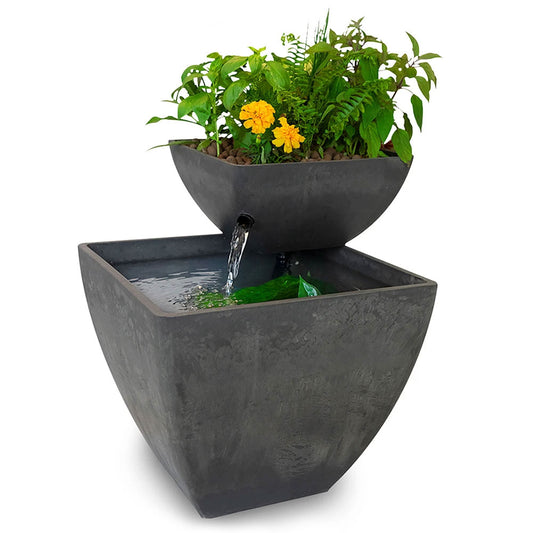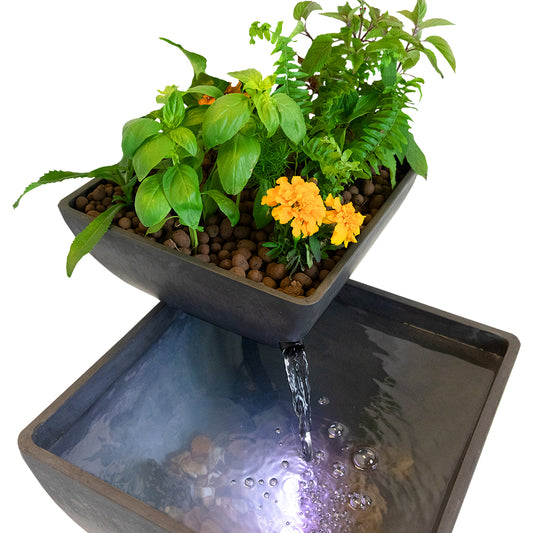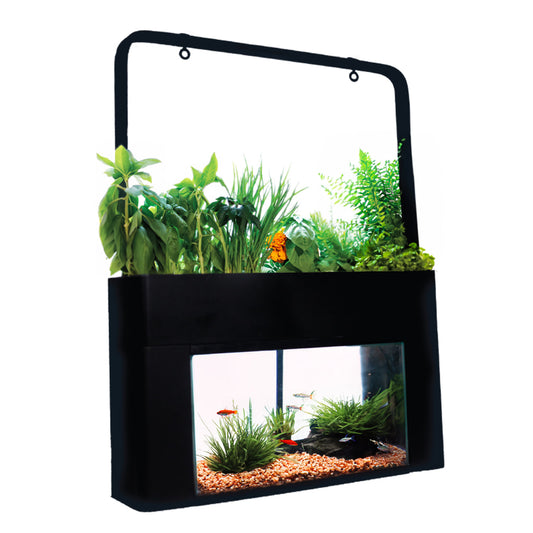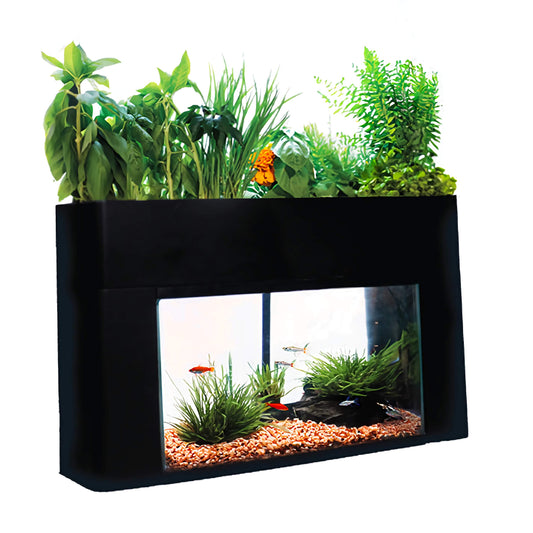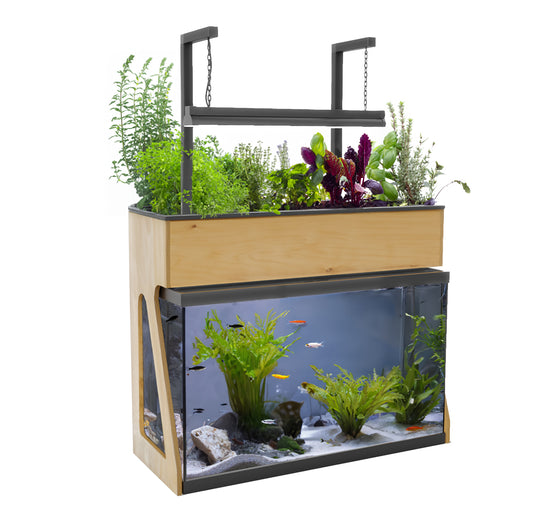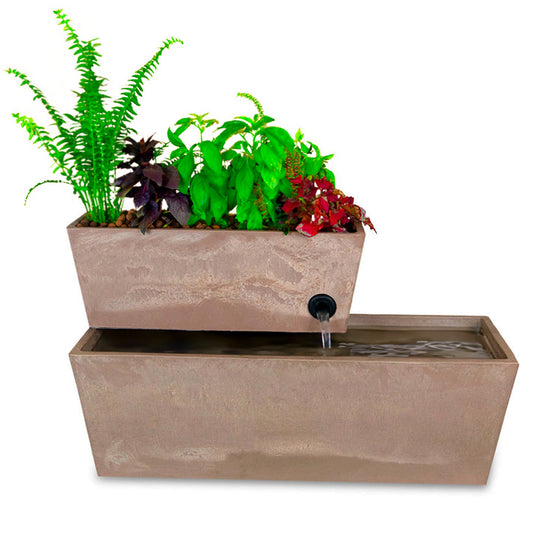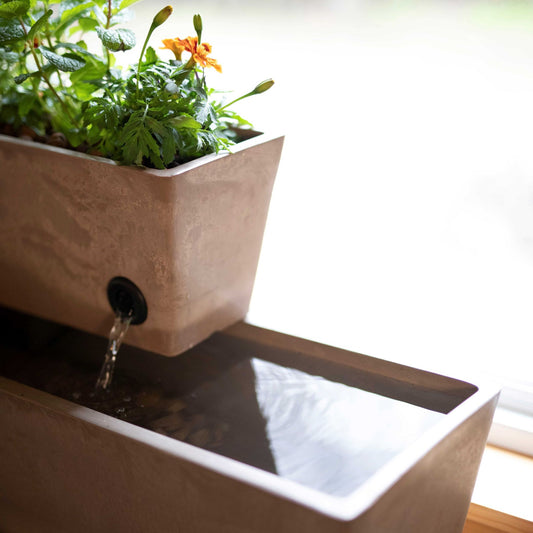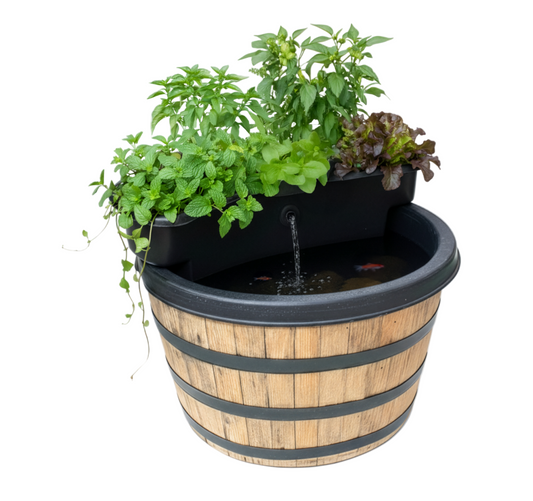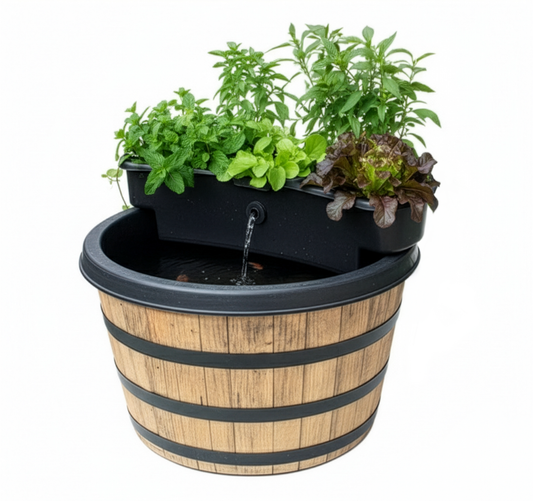Aquaponics in the Classroom

BENEFITS OF AQUAPONICS IN EDUCATIONAL SETTINGS
Aquaponics, the 2-in1 closed-loop system in which you can grow fish and cultivate plants together, illustrates different principles in science, agriculture, math, business and others. Hence, it is not only ideal for growing fresh herbs and vegetables, but also for teaching and learning. Both educators and students can benefit from understanding how our natural environment works in a hands-on way.
- Educators in Science subjects such as Biology, Botany, Physics, Chemistry, Zoology and Ecology can teach their students the process and necessary requirements to cultivate plants and grow fish. Additionally, other concepts of science can be developed, such as the role of bacteria in aquaponics, how the water cycle works and how much light the plants need to survive, the acceptable pH level of the water and functions of other acids such as hydroxides, carbonates, and bicarbonates, as well as the existence and importance of other chemical elements like oxygen in the process.
- Starting an aquaponic garden helps students understand how math surrounds us on a daily basis. It will help to utilize their math skills by determining the cost of growing plants and fish. Along with computing the surface area to volume ratio for the number of fish and plants in the system, calculating the correct feeding rate for the fish and other math skills.
- Aquaponics demonstrates the need of all living organisms to co-exist in conjunction with the non-living components of their environment to survive. Such understanding will make both educators and students realize the vital roles animals, plants and microorganisms have in keeping our ecosystem balanced, and its impacts on human life. There are also many practical life lessons that aquaponics can give to students. Growing something from seed will make students appreciate what it takes to grow food and it will make them realize the importance of finishing the food they have on their plates. Those who don’t eat vegetables are likely to be encouraged to taste the fruit of their own labor.
- As the processes in aquaponics are all natural, it produces a steady supply of organic, pesticide- free herbs and vegetables. Hence, teachers and students will have easy access to healthy and organic produce. With access to such food comes the ability to test and discuss helpful nutritional benefits and facts.
The list of benefits aquaponics brings to a school setting is endless. Aquaponics demonstrates the fundamentals of many things in different subject areas; therefore, it will help teachers to bring up many educational topics to their students. This approach will allow both of them to learn together in the process.

